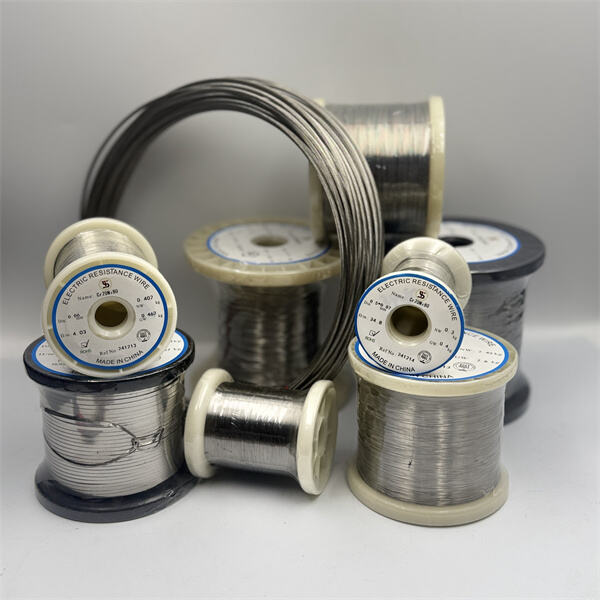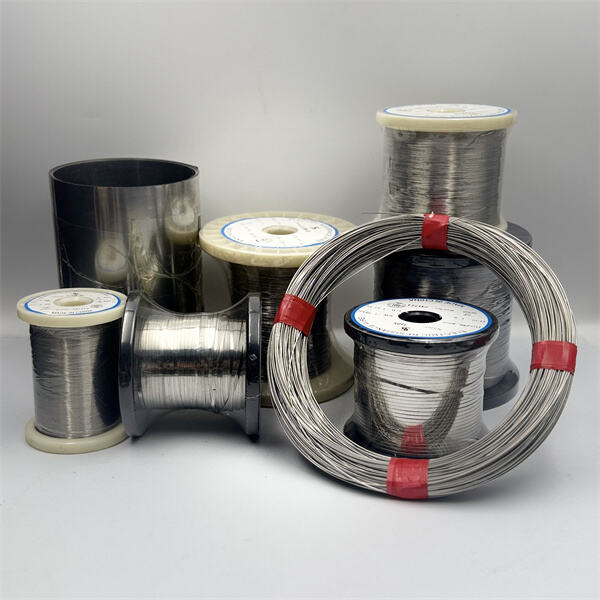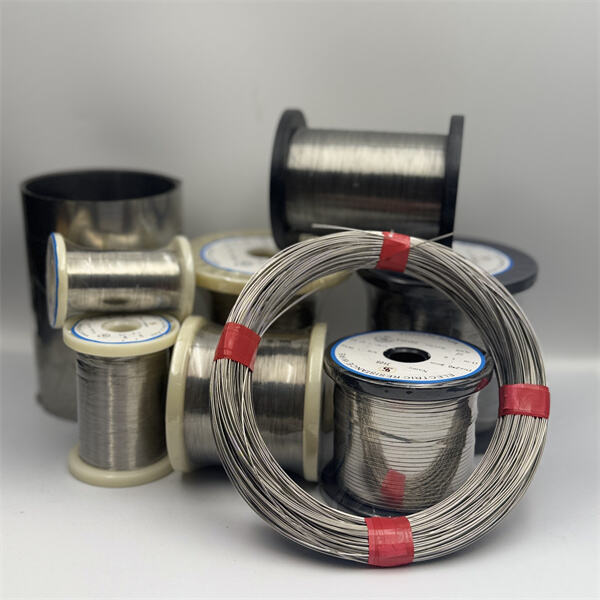Make wires connecting the world.
Did you ever notice some wires are thicker than others? A Resistance Wire gauge refers to its thickness, and can affect how electricity travels through it. This is known as resistance. Resistance indicates the difficulty for electric current to pass through a wire that is really important when we use electricity at home, in our schools, and workplaces
Think about a water hose. Just like a hose, the nozzle at the end helps control the amount of water that comes pouring out when watering plants. If a nozzle is small, water doesn't flow as well and comes out more slowly. This is like resistance in a wire. The more resistance there is, it means it's harder for the electricity to flow, similar to how water has more difficulty flowing through a small nozzle.
Related to resistance is the thickness of a wire. Thicker wires usually have lower resistance. That's because thicker Ni-Chrome Wire have more space for tiny particles known as electrons to pass through them. With more space, electricity has a much easier time traveling from one end of the wire to the other
On the flip side, thinner wires have less space for electrons. This means that they provide more resistance, which makes it more difficult for electricity to pass through them. That’s why thin wires can heat up when you use them for extended periods. The resistance causes heat to accumulate inside the wire, and if the wire gets too hot, it can be hazardous. If wires are getting too hot they may even start fires or degrade.

Imagine a highway. Electric current is similar to the number of cars that can travel along the road simultaneously. The more lanes in a highway, the more vehicles can go side by side without any issue. Similarly, thicker Fe-Cr-Al Wire can carry more electricity because there is more space for electrons to travel, like how a wide highway can allow more cars to travel.

Wires that are too thin may burn too hot. If wires get hot, bad things happen — like melting the plastic that covers the wire or even starting a fire. So solving this might mean building a circuit to save a lot of time and money because it will take more money to build a circuit, the thicker the wire. It’s like buying an expensive hose when you just needed a simple one for your backyard.”

Choosing the right wire gauge is very important for the strength and safety of a circuit. As an illustration, if you are constructing a circuit for a mini light bulb, you can use a thinner wire as it will reduce the amount of money spent and will also create less resistance. This allows the light to be bright without wasting energy.
With dozens of material types available, TS Heating Alloy Materials Co., Ltd offers a broad selection of resistance wire and steel wire rope products. This variety ensures that we meet the specific needs of diverse industries, from construction to specialized sectors requiring resistance wire ropes. Our ability to supply both standard and custom-made solutions makes us a one-stop shop for businesses worldwide, providing versatility and flexibility to cater to various market demands.
Located in Taizhou, Jiangsu, China, TS Heating Alloy Materials Co., Ltd benefits from its proximity to Shanghai Port, one of the world's busiest shipping hubs. This strategic location facilitates efficient international shipping, allowing us to offer timely delivery to markets across Asia, Europe, North America, and Africa. Our logistics capabilities ensure that we can meet global demand quickly and reliably, making us an ideal partner for companies looking for high-quality alloy wire products with fast turnaround times.
Since its establishment in 2023, TS Heating Alloy Materials Co., Ltd has expanded its international footprint through strong trading partnerships. Our products are now successfully exported to regions such as Japan, South Korea, Southeast Asia, Europe, and Africa, with an emphasis on fostering long-term relationships. By continuing to develop the TS Heating Alloy brand globally, we aim to increase recognition and expand our presence in international markets, offering high-performance alloy materials to customers worldwide.These four points highlight TS Heating Alloy Materials Co., Ltd's strengths, showing its commitment to quality, customer service, and global expansion.
TS Heating Alloy Materials Co., Ltd is equipped with cutting-edge technology, including wire drawing machines, annealing furnaces, and packing machines. This ensures that every product, from raw materials to finished items, meets stringent quality standards. The company’s production processes are designed for precision and reliability, enabling the manufacturing of high-quality resistance wires and steel wire ropes. Whether it's Fe-Cr-Al or Ni-Cr wire, our products are crafted with care and expertise, ensuring optimal performance in various industrial applications.